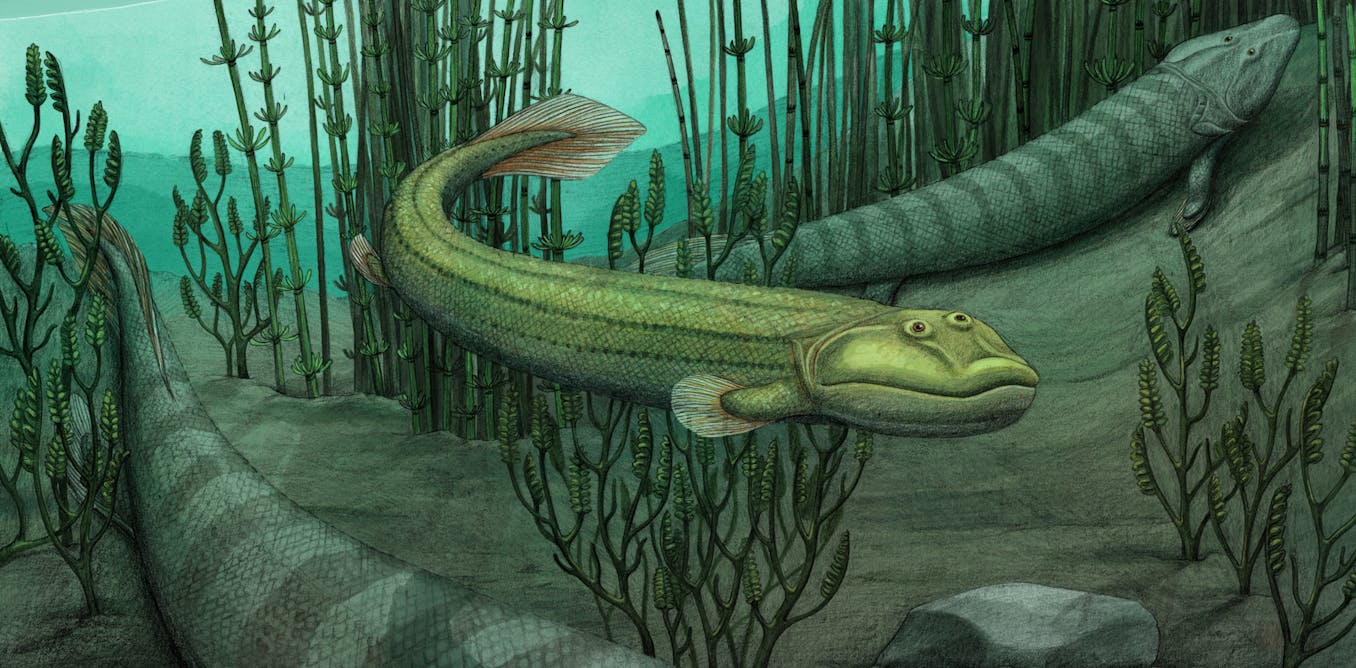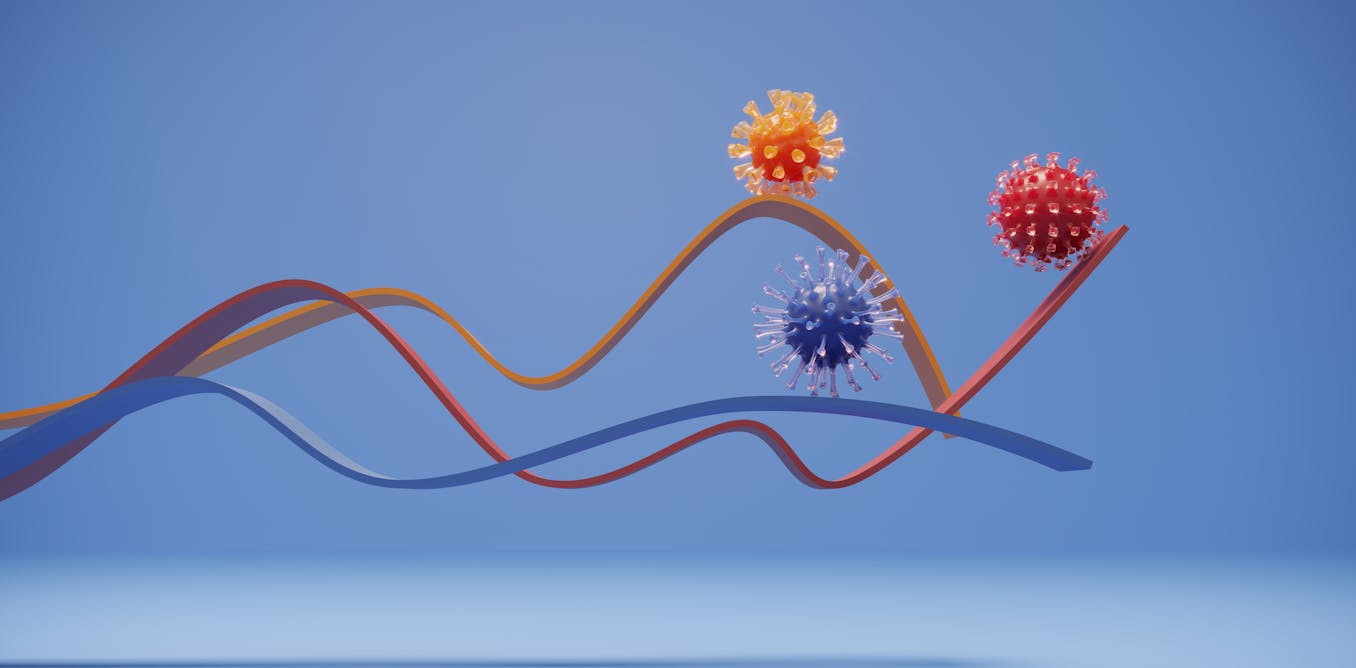Deer have antlers, walruses have tusks – here’s why so few birds have weapons of their own
Birds will shriek and dive at each other over food, territory or mates, but only a small number of species sport actual weapons. The reason: Flying matters more for their survival than fighting.
March 7, 2022 • ~9 min
Deer have horns, walruses have tusks – here’s why so few birds have weapons of their own
Birds will shriek and dive at each other over food, territory or mates, but only a small number of species sport actual weapons. The reason: Flying matters more for their survival than fighting.
March 7, 2022 • ~9 min
Animals have evolved to avoid overexploiting their resources – can humans do the same?
New research sheds light on why predators don’t evolve to become so aggressive that they eat all their prey – and then go extinct themselves.
March 3, 2022 • ~7 min
We're analysing DNA from ancient and modern humans to create a 'family tree of everyone'
How we’re linking together genetic material from thousands of people - modern and ancient - to trace our ancestors and the history of our evolution.
Feb. 28, 2022 • ~7 min
Genetic GPS system of animal development explains why limbs grow from torsos and not heads
Hox genes make sure all your body parts grow in the right place. Understanding how they work can reveal the process of evolution and lead to potential treatments for congenital birth defects.
Nov. 10, 2021 • ~10 min
Massive numbers of new COVID–19 infections, not vaccines, are the main driver of new coronavirus variants
When the coronavirus copies itself, there is a chance its RNA will mutate. But new variants must jump from one host to another, and the more infections there are, the better chance this will happen.
Sept. 9, 2021 • ~8 min
One incredible ocean crossing may have made human evolution possible
Given tens of millions of years, wildly improbable events – like primates crossing oceans – are almost a given.
April 29, 2021 • ~10 min
Nature and nurture both contribute to gender inequality in leadership – but that doesn't mean patriarchy is forever
Recognizing the influence of evolution on behavior and gender norms suggests ways to reduce gender inequality in leadership in the real world.
Aug. 18, 2020 • ~9 min
/
4








